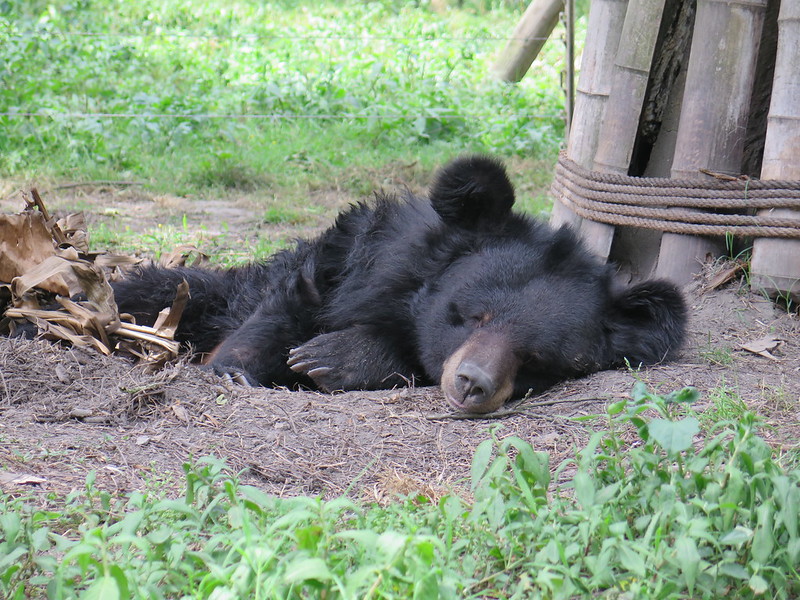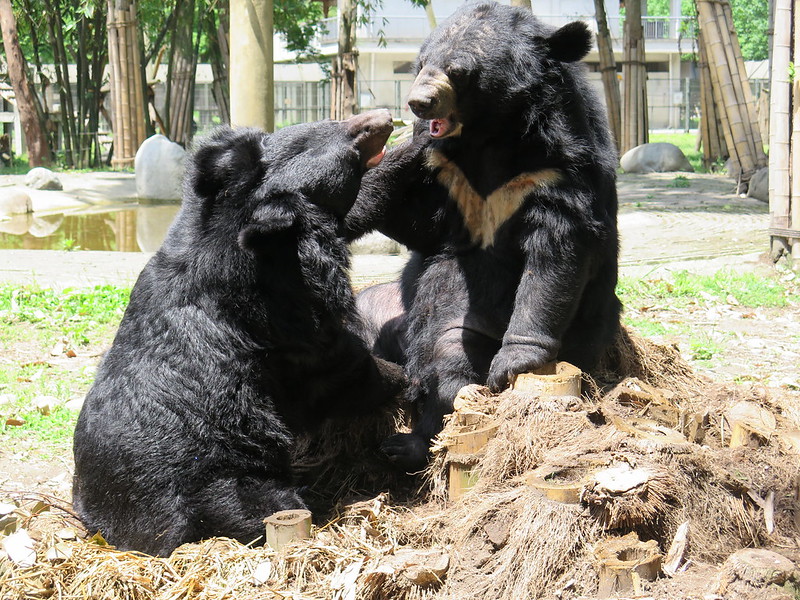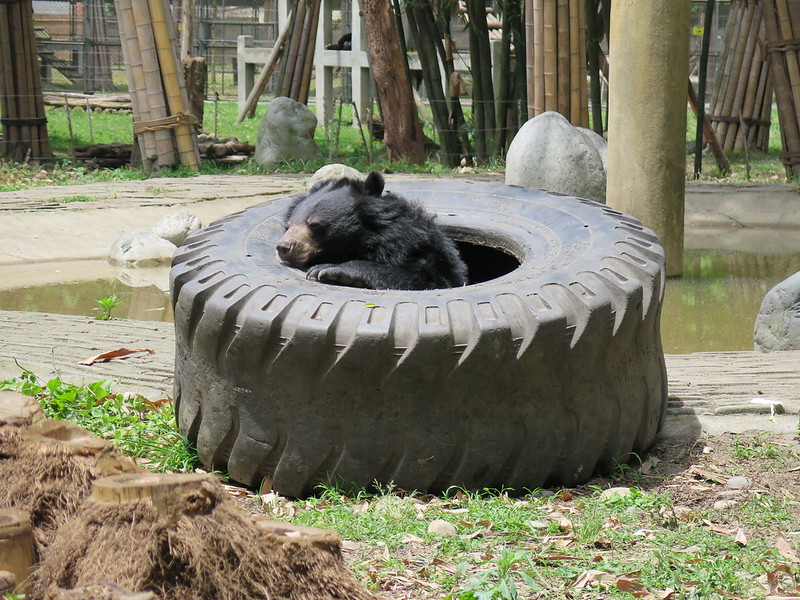These sleepy bears have just woken up in the year of the rooster – four months late
26 May 2017
Some very tired moon bears at Animals Asia’s China sanctuary have just woken up for the first time since the Lunar New Year began all the way back in January.
After four long months of sweet dreams and fleeting wakefulness, moon bears at Animals Asia’s China sanctuary have emerged from semi-hibernation.
In the colder climate of Chengdu, China, some moon bears experience “winter dormancy”, during which they will eat less, be less active and sleep much more than normal.
And the sleepiest of all are just starting to emerge from their dens now – greeting the dawn for the first time since the year of the rooster began four months ago.
Moon bears Emy and Pixie spent the last four months cuddled up together in the same basket. These comfortable bear beds are designed for one and can comfortably accommodate two, but when a third comes a long, they tend to get a bit crowded.
But sleepy heads Emy and Pixie didn’t seem to mind the lack of space one bit when Abracadabra joined them for a few months of snuggles.
When Abracadabra finally decided she could sleep no more she left, but was quickly replaced by Jingle who decided a basket full of bear cuddles was too good to pass up.
Since deciding to join the rest of us in 2017, Emy, Pixie, Jingle, and Abracadabra have mostly been taking it slowly.
While Pixie and Jingle have found time to playfully blow bubbles or splash in the pool and wrestle with more active friends like Wang Cai – Emy has mostly been sleeping in new locations, such as a sun dappled tyre.
Animals Asia Bear Manager Molly Feldman said:
“It’s lovely to see some of these old friends back out on the grass again. We look after them while they experience winter dormancy, making sure they have everything they need to hand in their dens, but mostly we leave them to rest.
“Not every bear wants or needs to experience winter dormancy, but it is important that those who do are free to do so. These poor bears have been damaged so badly by bear bile farming that they can never return to the wild where they belong, but at least we can provide them with a life which allows them to express the same natural instincts and behaviours they would have done out in the forests.”
BACK






